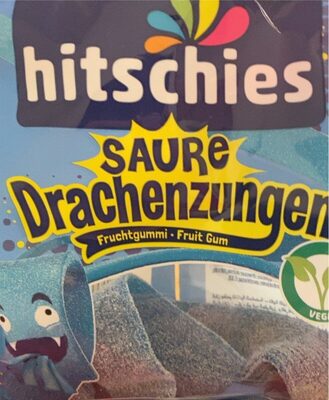
Barcode: 4003840008751
Saure Drachenzungen
HALAL
📝 Reason: None of the declared ingredients match known Haram (prohibited) items such as pork derivatives, alcohol, or the Haram-specific E codes (e.g., E120, E124, E354, E999). Most are plant-derived. However, ‘flavoring’ is generic and its source is unclear; without Halal certification or source disclosure, it is marked as Doubtful (Mashbooh), per Sharia guidelines (Quran 5:3, IFANCA guidance).
🏷️ Category: Snacks, Sweet Snacks, Confectioneries, Candies, Gummi Candies, Acid Gummy Candies
📄 Certificates: Vegetarian, Vegan, Made In The Eu, Vegetarisch
Ingredients:
Details
Understanding the Halal Status of Saure Drachenzungen
Saure Drachenzungen, a popular sweet treat, has gained attention from consumers focused on food dietary restrictions, particularly within Halal supermarkets and specialized shops. Understanding the Halal certification and ingredient breakdown can help consumers make informed choices about their snacking habits.
What Does HALAL Mean?
The term ‘Halal’ refers to what is permissible or lawful in traditional Islamic law. Foods consumed must meet specific criteria, ensuring they align with dietary guidelines stipulated in the Quran. Products that are declared Halal do not include any components that come from forbidden (Haram) sources such as pork derivatives or alcohol.
Ingredients Analysis
After rigorous analysis, Saure Drachenzungen has been classified as Halal due to the absence of prohibited ingredients. Below is a detailed examination of the ingredients and their respective Halal status:
- Sugar: Sucrose that comes from plant sources, typically extracted from sugarcane or beet. No animal processing methods are used. Source
- Glucose-fructose syrup: Derived from corn or wheat starch, this syrup does not contain animal or alcohol components. Source
- Wheat flour: A product of ground wheat grain, fully Halal as it does not contain any animal matter. Source
- Acidifier: Malic Acid: Typically found in apples, recognized as Halal and derived from natural sources. Source
- Acidifier: Citric Acid: A common ingredient derived from citrus fruits, produced through fermentation; it is considered Halal. Source
- Dextrose: A sugar derived from corn or wheat with no involvement of animal products. Source
- Palm oil: This oil is plant-based and does not derive from animal sources, thus maintaining its Halal integrity. Source
- Flavoring: This component is generic; while its nature is uncertain, it is essential to verify its sources. Without clarification or certification, it falls into the category of ‘Doubtful’ (Mashbooh), adhering to guidelines set in the Quran (5:3). Source
- Coloring agent: Brilliant Blue FCF (E133): A synthetic color that does not involve animal products, making it Halal. Source
- Antioxidant: E306 (Tocopherol): Often derived from vegetable oils, primarily soy. When plant-based, it is Halal. Source
- Antioxidant: Ascorbic acid: Vitamin C that either comes from glucose or natural plant sources, thus permitted within Halal dietary laws. Source
Conclusion: Choosing Halal Products
Saure Drachenzungen offers an enticing sweet snack option for those adhering to Halal dietary laws. Given that the ingredient analysis shows no components that conflict with Halal standards, this product is clearly identifiable as Halal certified. Although there is a note of caution with the flavoring component, which remains categorized as Doubtful (Mashbooh), the overall assessment of the ingredients points to a safe option for consumers seeking Halal treats. When selecting confectionery products, always verify the ingredients and certifications to ensure compliance with dietary needs.
